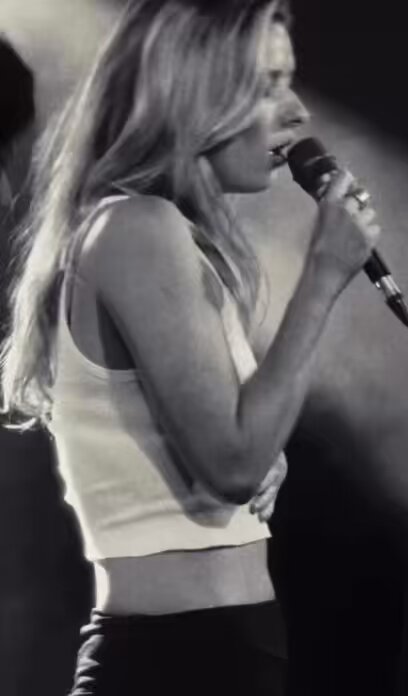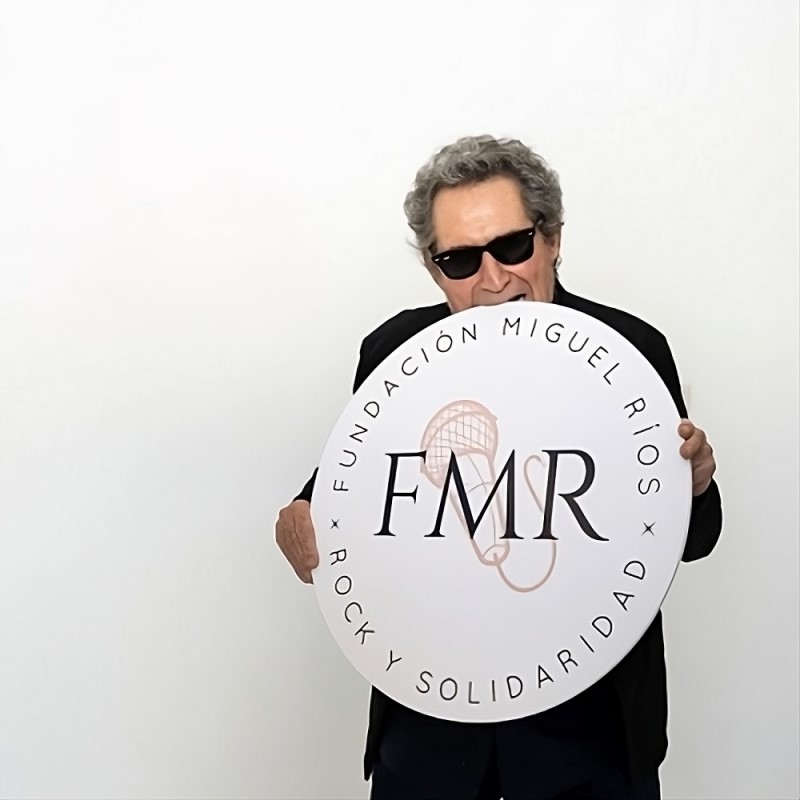By LoffMusic
Nashville / London / Los Angeles – October 2025
There are debuts that are more important for the last name than for the voice.
And there are others in which, as soon as the first note is played, the last name dissolves.
Apple Martin, the daughter of Chris Martin (Coldplay) and Gwyneth Paltrow, belongs to the second category.
At 21, Apple took the stage at Nashville’s Cannery Hall with Angeleno duo Jade Street, and, for three minutes, the audience stopped watching a “daughter of” to listen to a performer who sings with vulnerability and mettle, and who seems to understand that emotion – not lineage – is what really sustains a song.
“Satellites”: atmospheric pop and melodic soul
The song he presented, “Satellites”, will be released on October 28th and it works as his letter of introduction.
It is an ethereal and melancholic pop, with enveloping synthesizers and a vocal cadence close to Clairo, Phoebe Bridgers or Maggie Rogers.
The sound has some Coldplay heritage -that luminous melancholy, that piano that seems to look at the sky-, but the interpretation is different: more intimate, less epic, more skin.
The performance in Nashville, of which fragments have been viralized in networks, showed a serene Apple, with a fine-tuned voice, without seeking virtuosity, but with a tonal control that surprises for someone who steps on stage for the first time.
“Satellites” is not a dazzling song, nor does it seek to be. It is honest, minimalist and emotional, and that, in times of digital noise, can be its great weapon.
A lineage that needs no explanation
Apple Martin didn’t just appear out of nowhere.
She had already co-signed the song “Let Somebody Go”, from Coldplay’s album Music of the Spheres (2021), with her father and Selena Gomez.
Her brother, Moses Martin, also sang backing vocals on Humankind, another of the album’s tracks.
The family link to music was always there, but Apple has preferred to move forward cautiously: first college (Vanderbilt), then forays into fashion (campaigns for Self-Portrait and GAP), and now this measured leap into the music world.
The question is inevitable:
is this debut the start of a career or just a one-off exploration?
For now, neither Apple nor Jade Street have confirmed whether “Satellites” will be part of an EP or if there will be a follow-up. But, according to People, the collaboration “stems from a genuine friendship and impromptu evenings of songwriting.”
Nashville, cradle of legacies and reinventions
It is no coincidence that the debut was in Nashville, a city where industry and emotion coexist without hierarchies.
If there is one thing this city has, it is that it forgives surnames: here, you either get excited or you don’t.
And Apple succeeded. The audience, mostly college students, responded with warmth and surprise.
Among the attendees were local musicians and some curious onlookers attracted by the media morbidity. But when the song ended, the applause did not sound like courtesy: it sounded like discovery.
Apple Martin and the generation of “emotional soft pop”.
Apple belongs to a new wave of young female singer-songwriters who reclaim pop as an emotional language, not as a show.
A space where Billie Eilish, Lizzy McAlpine or Gracie Abrams fit, and where the focus is on intimacy, vulnerability and truth.
At a time when his own father has reflected on love, empathy and public criticism, Apple seems to walk in parallel, but with a less political and more introspective voice.
He may not want to change the world (yet), but he does want to tell it from his angle.
And that, in the age of overexposure, is already revolutionary.
Apple Martin has made his appearance.
No artifice, no scenery, no last name hanging around his neck.
Just a young, sensitive voice and a song that floats between melancholy and desire.
It may still be too early to speak of “a new star”, but one thing is clear:
there is room for it, and Satellites could be the first turn of its orbit.




